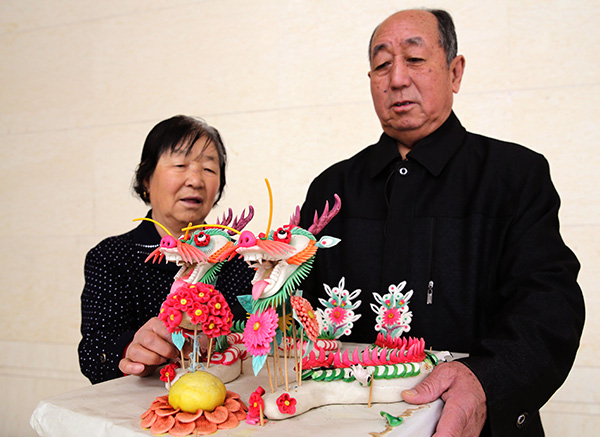 |
|
Wang Minzheng and his wife show a decorative flour bun he made as an offering to the Yellow Emperor in Huangling, Shaanxi province. [Photo by Huo Yan/China Daily] |
Overseas Chinese from across the world began to flock to the county each year to honor this iconic ancestor, with compatriots from Taiwan, Hong Kong and Macao occupying prominent positions in the ceremony.
Authorities at all levels have recognized the ceremony's power to stoke pride in Chinese people worldwide, with the hope that it may bolster the nation's search for outside investment and technologies to stoke economic growth.
The central government started to help with organizing the memorial ceremony in 2004. Two years later, the event was added to the list of national intangible cultural heritage.
Although its role has changed, the memorial ceremony rarely does. A ceremonial drum is beaten 34 times, which represents China's 34 regions, and a large bell is rang nine times (an auspicious number in Chinese culture) to awaken the divine spirits. Offerings of flowers and elegiac speeches are made. Attendees visit the tomb and bow three times, and there are performances of traditional music and dance.
This year's event is themed "Trace the Source, Seek the Root, Unite the Hearts, Build the Souls". Thousands of observers from home and abroad, including Taiwan politicians Chen Chen-hsiang, vice-chairman of the Kuomintang, and New Party Chairman Yok Mu-ming, were expected to be in attendance.
To compliment the annual ceremony, the local authorities also arrange other related activities during March, including planting trees-the Yellow Emperor is said to have attached great importance to the practice-as well as academic seminars.